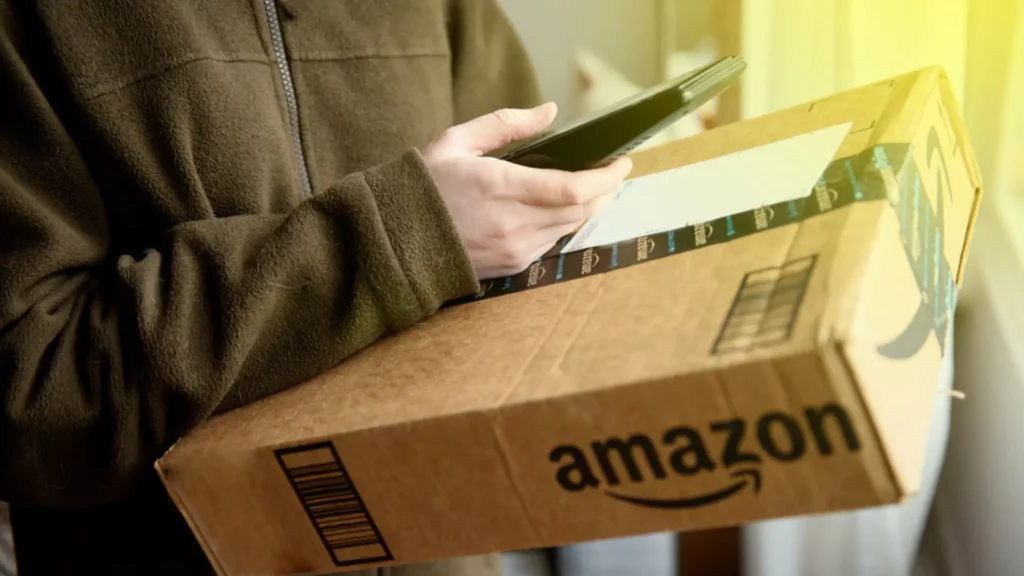Amazon’s main UK branch paid corporation tax for the first time since 2020 after the expiration of Rishi Sunak’s super-deduction tax benefit.
Amazon UK Services, which employed more than half of the UK employees of Amazon, pays a current tax of £18.7 million, most likely corporation tax.
After investing in infrastructure in its warehouse, like robotic technology, the company profited from Sunak’s measure and received a £7.8m tax credit in 2022 and a £1.1m credit in 2021. It stated that its UK companies paid the undisclosed current tax in 2022 and 2023.
Amazon has more than 25 warehouses in the UK and corporate headquarters in six cities. It reported that British companies made sales of £27 billion in 2023, up from £24 billion in 2022. In the UK, it makes revenue more than twice the revenue as Marks & Spencer, yet pays less than twice as much in taxes.
The business has already had criticism over the tax it pays in the UK compared to the scale of its operation. High-street retail chains have argued that the corporation has an unfair advantage as they pay expensive business rates to their physical shops.
Analysts speculated that Amazon’s lower capital expenditure has encouraged the corporate tax payment since it has limited the growth of its warehouses. They argued that the bill had gone up because there were fewer government tax benefits and previous losses to deduct from taxes.
For two years, starting in April 2021, companies could deduct 130% of their investment spending on equipment from their profits under the super-deduction system.
Amazon UK Services witnessed a decrease in tax relief with the implementation of the government’s full-year expensing program, which allows companies to claim 100% tax relief on approved plant and machinery investments.
Amazon UK Services paid a tax on profit of £81.3 million in 2023, which was more than £66.4 million in the previous year due to an increase in revenue of 5% to £6.9 billion and pre-tax profits up 13% to £250.7 million.
Amazon’s UK operation paid £932 million in taxes last year (including business rates, corporate tax, and national insurance contributions) from the £781 million it paid the year before.
Amazon announced that it dropped from £1.6 billion to £12 billion in UK infrastructure last year, including more than £1.5 billion in infrastructure, making it one of the top 10 business rate contributors in the UK.
Paul Monaghan, CEO of the Fair Tax Foundations, criticized Amazon’s need to be more open about its whole UK tax situation since people are curious about the amount of tax the company pays in the UK. From the income of £27 billion, they want to know how much profit they may claim in the UK. Due to the lack of transparency, it is claimed that a sizable amount of UK revenue goes to the historically losing company in Luxembourg.
Amazon chose not to respond to criticisms.
The Amazon Web Services (AWS) division, which offers thousands of businesses cloud computing and other services, invested £8 billion over the following five years in building, maintaining, and operating data centers in the UK.
Amazon has kept its workforce at 75,000 even though it added 10,000 new positions every year in 2020 and 2021, which is a sign that the company is using technology in its warehouses.
Now-millionaire Jeff Bezos founded Amazon in 1994. As part of an efficiency push, the company implemented a hiring freeze in the first half of last year, which resulted in the closing of three of its older UK warehouses, affecting 1,200 jobs. This year, the company and the GMB got into a battle over union recognition at the company’s huge Coventry warehouse.
